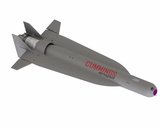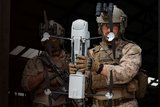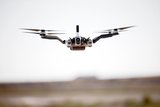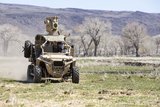Aurora announces Orion UAS’ first flight
The Orion unmanned aerial vehicle (UAV) being developed by Aurora Flight Sciences successfully completed its first flight on 24 August. The company announced the news at the Air Force Association Air and Space Conference on 17 September.
The company said that during the three hours and thirty-one minute flight, conducted from a western test range, the UAV reach an altitude of 8,000 feet above mean sea level.
Aurora is developing the Orion as a long-endurance UAV to provide extreme persistence for military applications such as ISR and communication relay.
The system was selected by the US Air Force Research Laboratory in 2010 to meet the objectives of the medium altitude global ISR and Communications (MAGIC) Joint Capability Technology Demonstration. The goal is to demonstrate a five-day flight at 20,000ft with a 453kg ISR payload.
The system's design goals include the capability to support multiple intelligence missions simultaneously, including FMV EO/IR sensor, communication relay, cross cueing and payload fusion, WAAS, VADER, and SIGINT options. It will also have the potential to provide strike capability for the warfighter with the ability to carry over 1,000 lbs per wing hardpoint.
Related Equipment in Defence Insight
More from Uncrewed Vehicles
-
![Cummings Aerospace showcases Hellhound loitering munition designed for US Army’s LASSO programme (video)]()
Cummings Aerospace showcases Hellhound loitering munition designed for US Army’s LASSO programme (video)
Cummings Aerospace presented its turbojet-powered Hellhound loitering munition at SOF Week 2025, offering a man-portable solution aligned with the US Army’s LASSO requirements.
-
![SOF Week 2025: PDW unveils attritable FPV drone for SOF operations at scale]()
SOF Week 2025: PDW unveils attritable FPV drone for SOF operations at scale
PDW has revealed its Attritable Multirotor First Person View drone at SOF Week 2025, offering special operations forces a low-cost, rapidly deployable platform for strike and ISR missions, inspired by battlefield lessons from Ukraine.
-
![SOF Week 2025: Teledyne FLIR white paper provides guidance on reusable loitering munitions]()
SOF Week 2025: Teledyne FLIR white paper provides guidance on reusable loitering munitions
Teledyne FLIR is highlighting the emerging requirements for 'recoverable and re-usable' loitering munitions across the contemporary operating environment during this week’s SOF Week conference in Tampa, Florida.
-
![SOF Week 2025: Kraken Technology group debuts K3 Scout USV in North America]()
SOF Week 2025: Kraken Technology group debuts K3 Scout USV in North America
High-performance maritime industry player Kraken Technology Group, based in the UK, has used the SOF Week conference in Tampa, Florida this week to debut its K3 Scout uncrewed surface vessel (USV) to the North American market.
-
![Palladyne AI and Red Cat to demonstrate capabilities for autonomous drone swarms to the US military]()
Palladyne AI and Red Cat to demonstrate capabilities for autonomous drone swarms to the US military
Red Cat and Palladyne AI recently conducted a cross-platform collaborative flight involving three diverse heterogeneous drones.
-
Jammer resistant drone designs spark search for countermeasures
The Russia-Ukraine conflict has driven another stage of evolution for drones and the counter measures to defend against them.

























